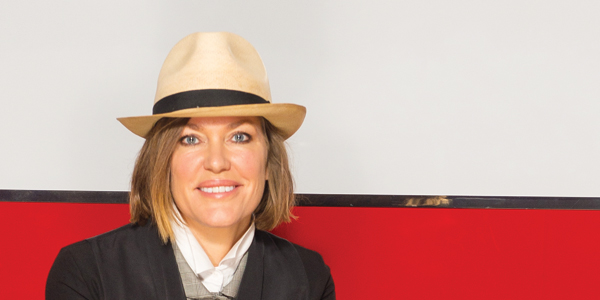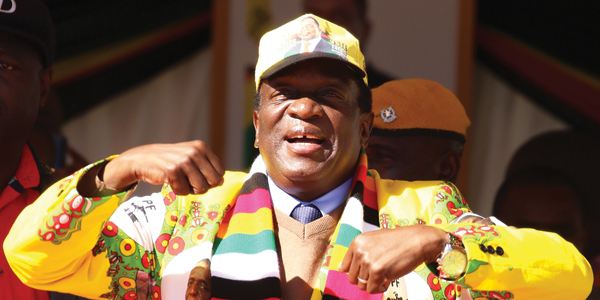Zimbabwe will go to the polls on Monday in its first elections without its ousted leader, Robert Mugabe, at the helm. The country stands poised, full of hope, but with pervasive recollections of the ruin that Mugabe’s years in power brought to the economy and to the lives of many thousands of Zimbabweans.
Mugabe, the country’s only leader since independence in 1980, was deposed in a bloodless coup led by the military last November. People took to the streets in jubilation, dancing around the army tanks and united in a belief that Zimbabwe – buckling under a severe cash shortage and crushed by years of violent repression – was about to enter a new era.
“It is not a secret that everyone in Zimbabwe has been waiting for this moment,” a woman who joined the throngs in the streets of the capital, Harare, told a BBC news reporter. “It’s a fresh start for Zimbabwe.”
Six months on, and enormous election campaign billboards have replaced the army tanks lining the main road into Harare. “The voice of the people is the voice of God,” many of the posters declare, alongside the smiling face of Emmerson Mnangagwa, who has replaced Mugabe as leader of the ruling Zanu-PF party.
Mnangagwa, aged 75, who in 2010 declared that he was a born-again Christian, has promised a free and fair election. Much hinges on this promise. A fair election is seen as critical to unlocking badly needed international investment in an economy that endured years of isolation under Mugabe. The unemployment rate is estimated to be as high as 90 per cent. There are long queues, as people wait each day to withdraw a maximum of US$40 from the banks.
The main hope among people is that the election will be free and fair. The main fear is that it will not be. For the first time since the 2002 election, observers from the European Union, the United Nations and the Americas have been invited to attend; a record 23 presidential candidates and 128 political parties are to participate.
The main opposition – seven parties under the umbrella of the Movement for Democratic Change (MDC), led by former lawyer Nelson Chamisa – has held rallies and public marches. Reports on the ground say the army has been present at these events, and has behaved violently at times – but that “by Zimbabwe standards”, nothing serious has occurred.
This, of course, is to admit that the bar has been set very low in recent decades. During previous violent and fraudulent elections, those who expressed support for the opposition risked brutal beatings at the hands of Mugabe’s Zanu-PF thugs. MDC posters might be rare compared to Mnangagwa banners, but are not torn down immediately, as they were in the past.
“There is an air of expectation and a rise of cautious courage amongst the people,” Ben Freeth, a white former farmer and human rights activist said.
Yet, many still wonder whether a free and fair vote is possible. According to a recent Afrobarometer survey, one third of respondents think their vote will not be counted and nearly half believe an incorrect result will be announced; 40 per cent expect violence following the announcement of the result.
Chamisa’s MDC party claims that the electoral roll – which has yet to be made available – is flawed. Reports say that the design features Mnangagwa at the top of the paper, despite him being fifteenth in the alphabetical candidates’ list; the sleight of hand is managed by splitting the paper into two columns, with 14 presidential contenders on the left-hand side and nine on the right.
On 12 July, thousands of opposition supporters marched to the office of the Zimbabwe Electoral Commission (ZEC), demanding transparency regarding the voters’ roll and calling for it to be made public. The ZEC has admitted in the past that at least 15 per cent of its staff were former members of the army and intelligence services. Human Rights Watch said the body had “not demonstrated independence or impartiality” and called on Mnangagwa to remove military influence from politics.
“The opposition’s greatest challenge”, Freeth says, “is the fact that the Zimbabwe Electoral Commission is a partisan organisation set up by Zanu-PF – and the Registrar General is still the same man who has overseen all flawed elections since an opposition was formed in 1999.” Many Zimbabweans remain unsure about Mnangagwa. Despite his rebrand as “ED” (his first two initials), he is best known by his nickname “Ngwena” (Shona for crocodile), an animal famed in local myth for stealth and ruthlessness.
As Mugabe’s right-hand man, Mnangagwa is said to have been complicit in some of the worst abuses of power. During the civil war in the 1980s between Mugabe’s Zanu party and the Zapu party of Joshua Nkomo, Mnangagwa, as National Security Minister, worked closely with the army to suppress Zapu. Around 20,000 people in Matabeleland – mainly ethnic Ndebeles, seen as Zapu supporters – were slaughtered in a campaign known as the “Gukurahundi”, before the two parties merged to form Zanu-PF.
Mnangagwa has denied any role in the massacres, but during a rally in Matabeleland’s main city of Bulawayo, in late May, he narrowly avoided a grenade attack that wounded one of his vice presidents and a minister. The president absolved the locals of blame, pointing a finger at disgruntled Mugabe loyalists, but the location was significant.
However, even if the entire region were to vote against Zanu-PF, its 861,700 voters, 15 per cent of the national total, on its own, would be unable to defeat Mnangagwa.
Mnangagwa may bill himself as a beacon for change, but his cabinet – the oldest in Zimbabwe’s history – retains many of Mugabe’s old guard, including his long-time spokesman George Charamba. The former army chief is vice-president and the former air force commander is Land Minister.
“Same bus, new driver,” is one of the kinder phrases bandied about by the opposition. A more specific concern is that Mnangagwa, like Mugabe – until it abandoned him – has the backing of the army. Last year’s military intervention was on the whole peaceful and was tacitly supported by the international community. But it raises the question that, if the military were prepared to risk so much to carry out this soft coup, is it really prepared to hand over power to an unknown opposition? The army has made clear it will uphold the constitution during the election. It has not said whether it would accept an opposition party in power.
Forty-year-old Chamisa believes he will ride a wave of youthful optimism to victory. Voters crave generational change, he explains, saying in a recent interview: “The world is moving … young people are taking charge, look at France, look at Canada.”
Chamisa has also described Zanu-PF as a “weakened and divided opponent”, saying: “With the departure of Mugabe the coast is clear. The pillars of dictatorship are crumbling, the new is coming and I represent that new.”
He predicts that he will win 70 per cent of the vote. The latest Afrobarometer survey suggests the MDC alliance will gain 37 per cent of the vote, closing fast on Zanu-PF’s predicted 40 per cent. With the voting intentions of 23 per cent of voters unknown, the non-partisan pollster has described the prospect of the MDC securing a first-round victory as “within the realms of possibility”.
Freeth agrees that the “people want change”. “If there truly are free and fair elections ED [Mnangagwa] will go,” he insists. But, were he to lose, would the septuagenarian leader, who waited for so long in the wings of the Mugabe government, really relinquish power to his confident young rival?
“He would leave a tremendous legacy if he did,” says Freeth.
The country’s Catholic bishops earlier this month urged the faithful to vote for leaders who “truly serve the people”. Look for those that exemplify selfless service, responsibility, accountability, truthfulness and respect for human dignity, they wrote. “Ultimately, what we are voting for is not this or that government but rather a particular kind of society for ourselves and for our children … We believe, we hope, we pray [the elections can be an] opportunity to build a new Zimbabwe.”
Freeth concurs. “Please join us in praying for a godly and just leader in Zimbabwe. We have seen so many years of injustice and destruction and we are daring to hope that this election might herald change,” he says.




 Loading ...
Loading ...
What do you think?
You can post as a subscriber user...
User Comments (0)